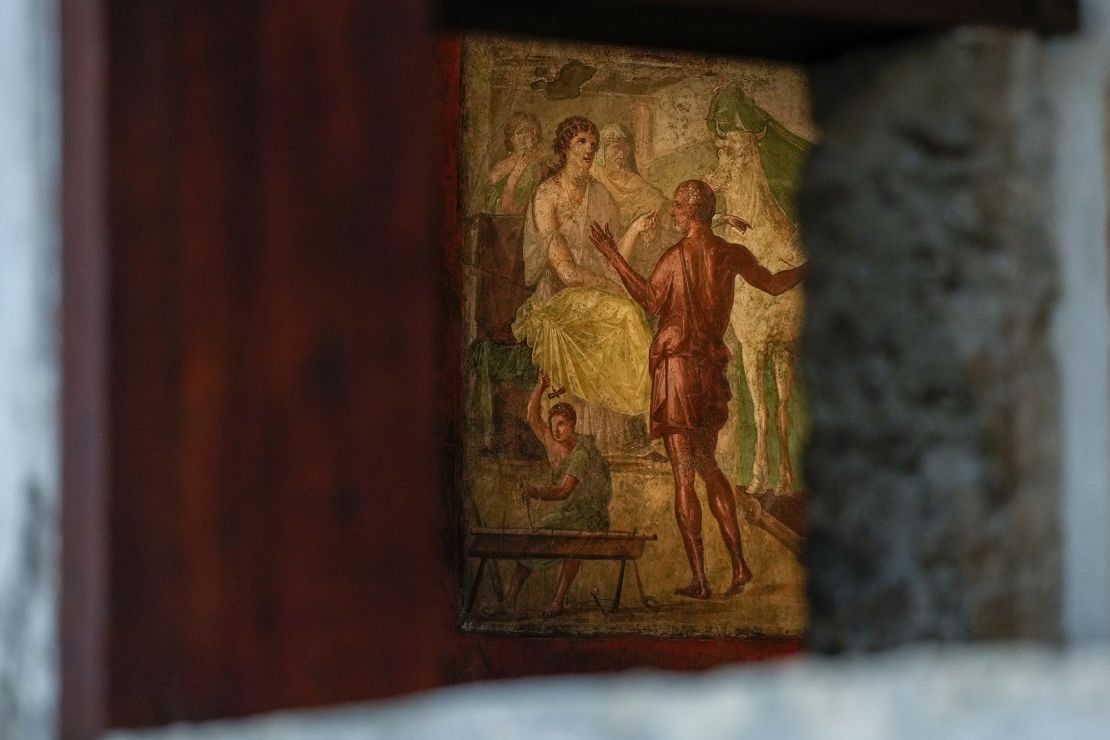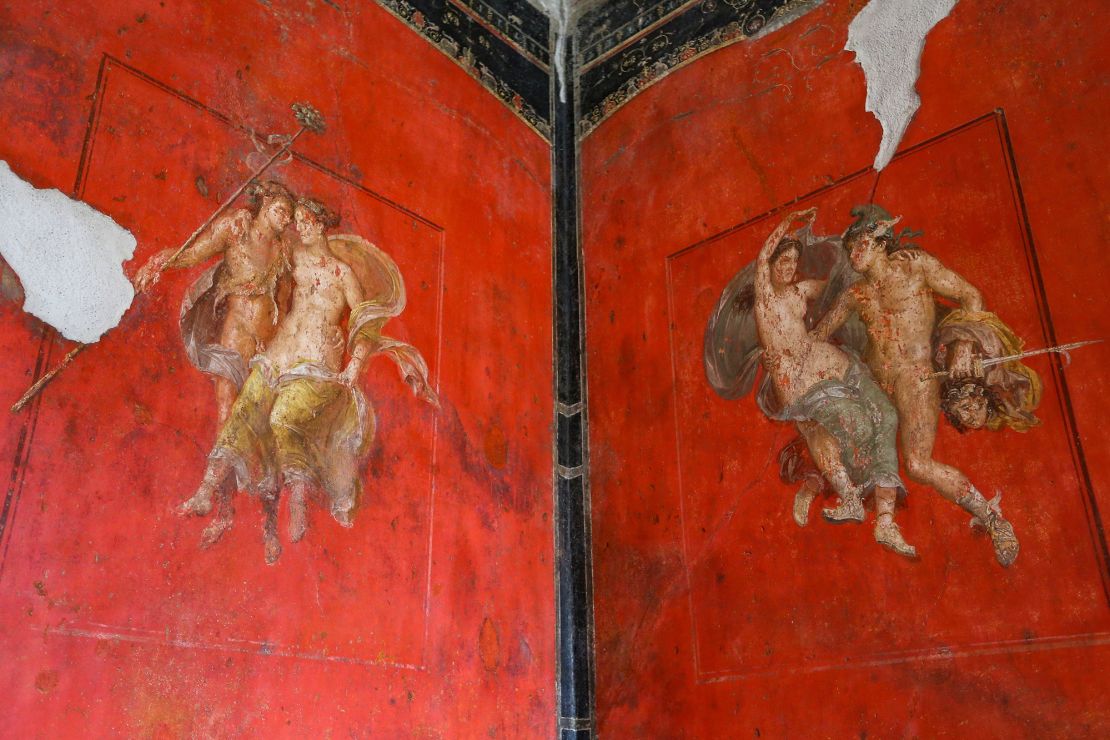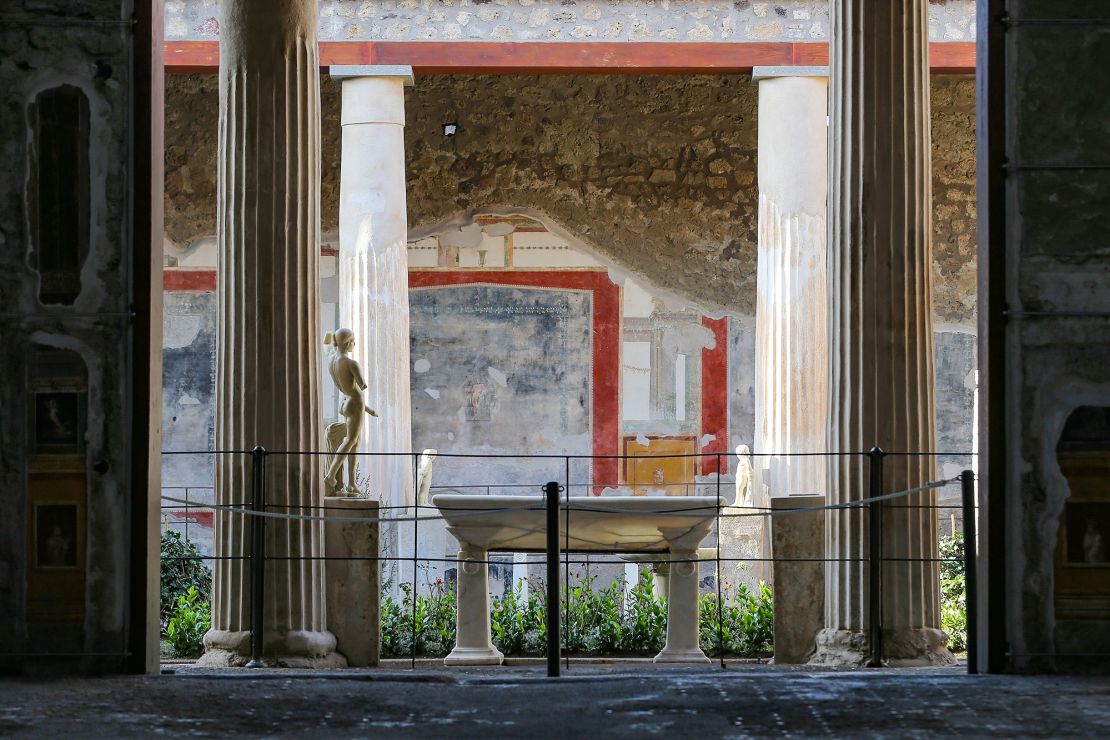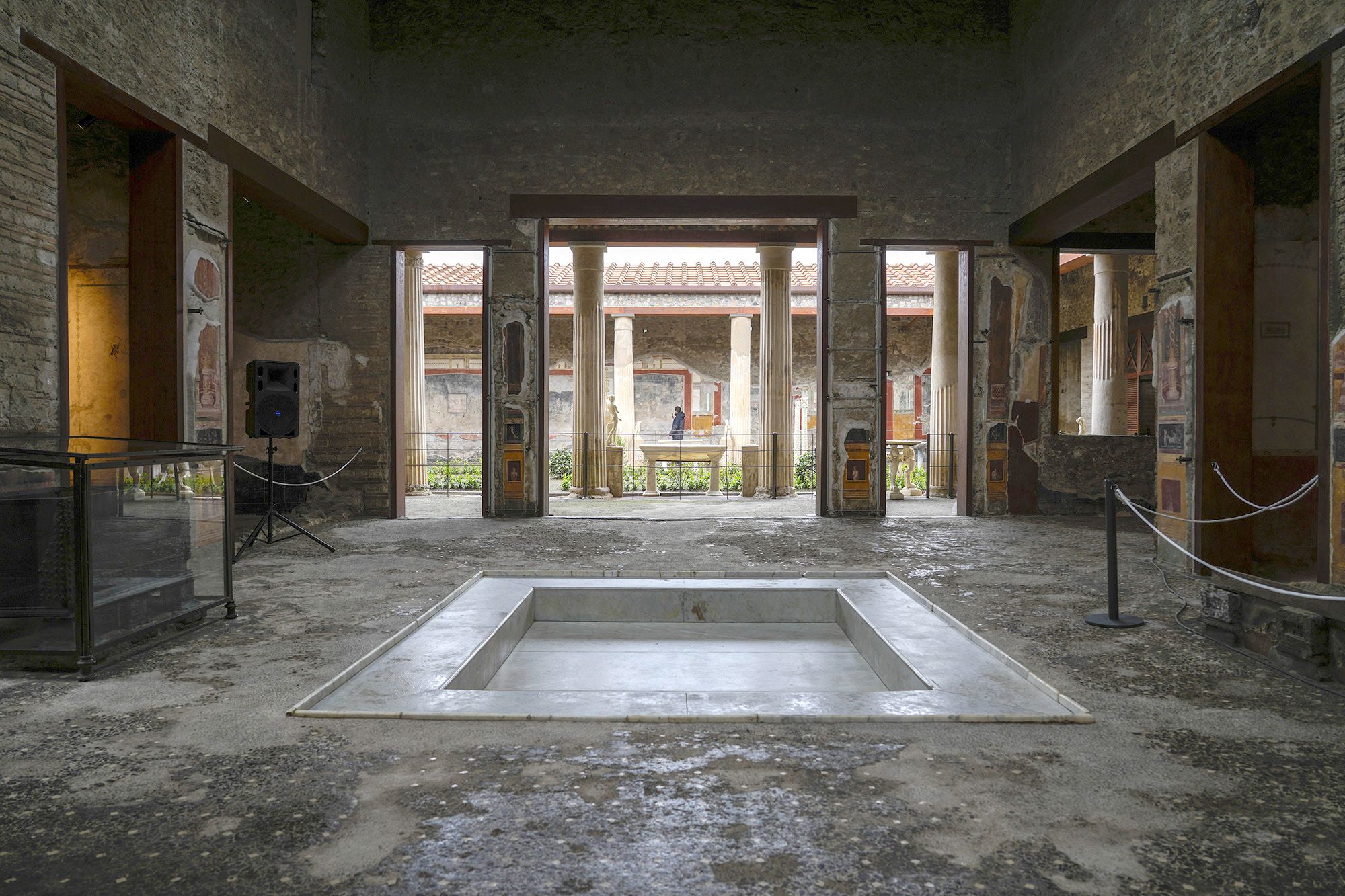A huge Pompeii house covered in erotic frescoes which has been closed to the public for 20 years has reopened after undergoing a dramatic renovation.
The historic House of the Vettii, located about 16 miles south of Naples, Italy, is thought to have belonged to two men freed from slavery – Aulus Vettius Conviva and Aulus Vettius Restitutus – who went on to fill the property with ancient art after making their fortune selling wine.
Originally built in the second century BC, the house – alongside much of Pompeii – was buried and preserved by ash from the eruption of Mount Vesuvius in 79 AD. It was excavated between 1894 and 1896.
Closed for the last two decades, a new restoration project was undertaken in 2016.

Experts including archaeologists, architects, restorers, engineers, structural engineers and landscapers were enlisted to work on the complex architectural site.
The Pompeii Archaeological Park announced the reopening of the house in a post on Instagram this week, saying: “The House of the Vettii, the iconic house of Pompeii, is reopening. It is always included in guides to the UNESCO World Heritage site and books on ancient art as a result of its extraordinary frescoes and the sculptures that adorned the large garden.
“Beside the right doorjamb, towards the atrium, there is a depiction of the figure of Priapus who, besides his huge member, was supposed to indicate the prosperity and wealth of the inhabitants of the house. The figure weighs his member on a plate of weighing scales, while a bag full of coins acts as a counterweight.”
The park said there was also evidence that prostitution was practiced in the house.

A ‘troubled history of restoration’
Some aspects of the renovation proved particularly challenging, according to a press release issued by the park Tuesday.
It said: “Particularly difficult was the removal of layers of wax applied to the frescoes in the past with the intention of protecting them and making them shine: a restoration method which has proved to be highly damaging and which has also obscured many details of the refined paintings, with representations of fantastic architecture and mythological scenes.”
Also complex was the restoration of the colonnade garden, with its elaborate system of water pipes and small fountains.

Gabriel Zuchtriegel, director of the Pompeii Archaeological Park, said: “The House of the Vettii is the history of the Roman world enclosed in a house, the ‘house museum’ of the Roman world so to speak: we find mythological frescoes and sculptures in bronze and marble, of exceptional artistic quality, which speak of the complex relationship between Greek models and Roman reworkings, but also the economic and social life of the city.
“The owners, freedmen and therefore ex-slaves, are the expression of a social mobility that would have been unthinkable two centuries earlier.”
Massimo Osanna, Italy’s director general of national museums, said in the press release that the reopening marked “the end of a long and troubled history of restoration.”





